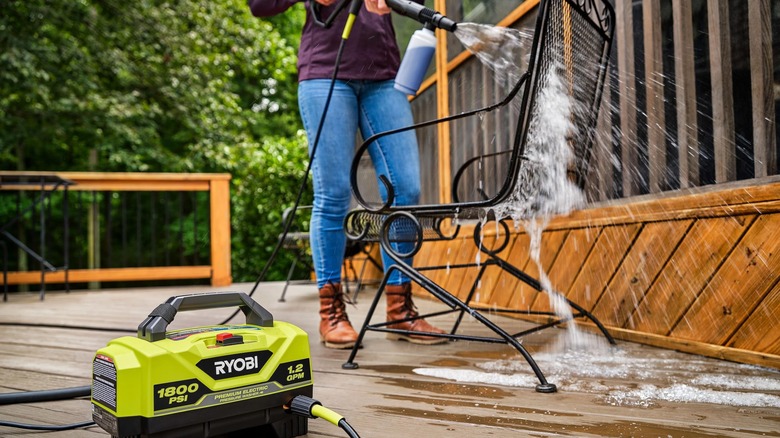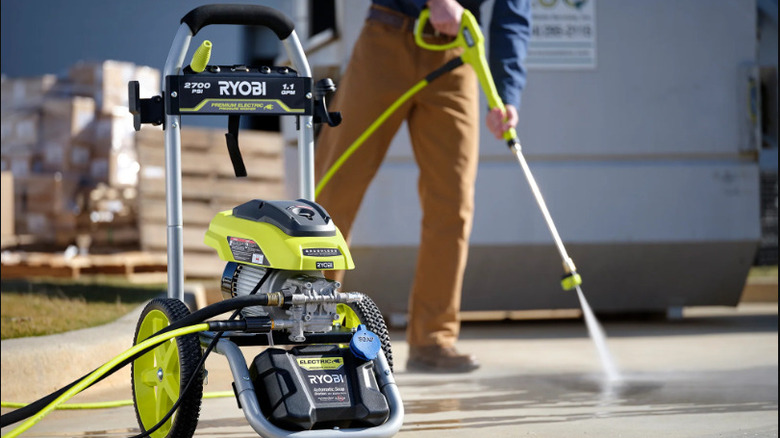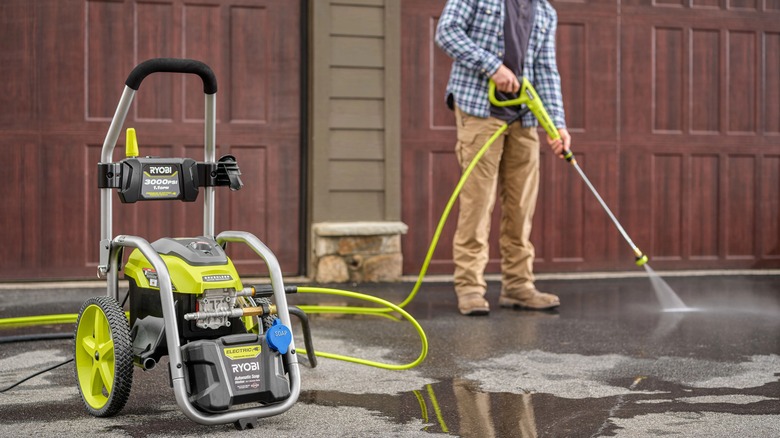Common Problems With Ryobi Pressure Washers (According To Owners)
When it comes to the best cheap power tool brands, Ryobi is one of the most widely appreciated brands on the market, especially by non-professionals. Founded in 1943, this brand is the most recommended for entry-level pros and serious DIYers as its products are known for being widely accessible and reasonably priced. Plus, while its products' performance might not compete at a pro level like Dewalt's products, they always demonstrate exceptional quality as consumer market tools.
That said, one of Ryobi's most useful offerings that you'll want to keep around your home is a pressure washer. It's a versatile piece of outdoor power gear that you can use around your home, not just to clean your roof and driveway, but also to strip paint from your deck. Besides that, you can even use a model like the Ryobi 40V HP Brushless 1200 PSI 1.0 GPM Pressure Washer to detail your car.
However, before you commit to this product, it's worth noting that, as reliable as Ryobi pressure washers are, a lot can go wrong with them. In fact, when you take a close look at reviews and forums, you'll find out that owners often run into unfortunate situations that can be quite frustrating. From low water pressure or supply to performance issues, here are some of the most common problems that can affect your Ryobi pressure washer.
Users often complain of stalling, overheating, and failing to function completely
There's nothing more frustrating than going to use your pressure washer only to realize that it can't start at all — or it fires up only to stall a few minutes later. In fact, many users have documented their experience across various forums online, complaining of gas-powered Ryobi pressure washers that might start fine one day and completely refuse to function the next. When this happens, you'll want to trace this back to fuel-related issues. Things like clogged carburettors, stale gasoline, and damaged spark plugs might be the reason why your Ryobi pressure washer keeps stopping.
Contrary, if you own a battery-powered pressure washer, you might want to check and see if the batteries are dead or damaged. Don't forget to check the battery and tool contacts, too. If they're clogged with dirt or debris, your washer will definitely struggle to start or experience an unexpected shutdown.
Some owners have also expressed issues with their electric pressure washers overheating, which could well be the cause of the developing stalling issues owners are suffering from. In the worst-case scenario, if the capacitor of the washer overheats, it could burst, firing projectiles outward that could injure bystanders. And this is one of the reasons why the CPSC has issued a recall for models like the RY142300 – Electric 2300 PSI Pressure Washer.
Other common problems that affect Ryobi pressure washers
Another headache that seems to be affecting owners of Ryobi pressure washers is leaks. Maybe it's because water may drip from the pump, hose connections, or even the spray gun, which, in turn, may reduce your machine's overall efficiency. Besides that, some users also report loss of water pressure (or no pressure at all). Given that high pressure is the main reason you're buying the washer in the first place, having a Ryobi pressure washer with low, unworkable pressure might make the tool feel unreliable. If this happens, you'll want to check for worn-out seals, clogged nozzles, or a failing pump.
Other sources highlight a damaged soap injector system as a common issue with Ryobi pressure washers. Many users find that the system either fails to dispense detergent properly or does not work at all. When this happens, it will definitely be challenging to clean surfaces that need more than just high-pressure water. Another issue that Ryobi pressure washer owners complain about a lot is a machine that runs roughly while in use. While the machine will still operate, issues like excess vibration and unusual noises will make it harder for you to control the tool. To prevent this, you'll always want to use fresh fuel and keep up with other preemptive maintenance services like cleaning the fuel filter and carburetor.


